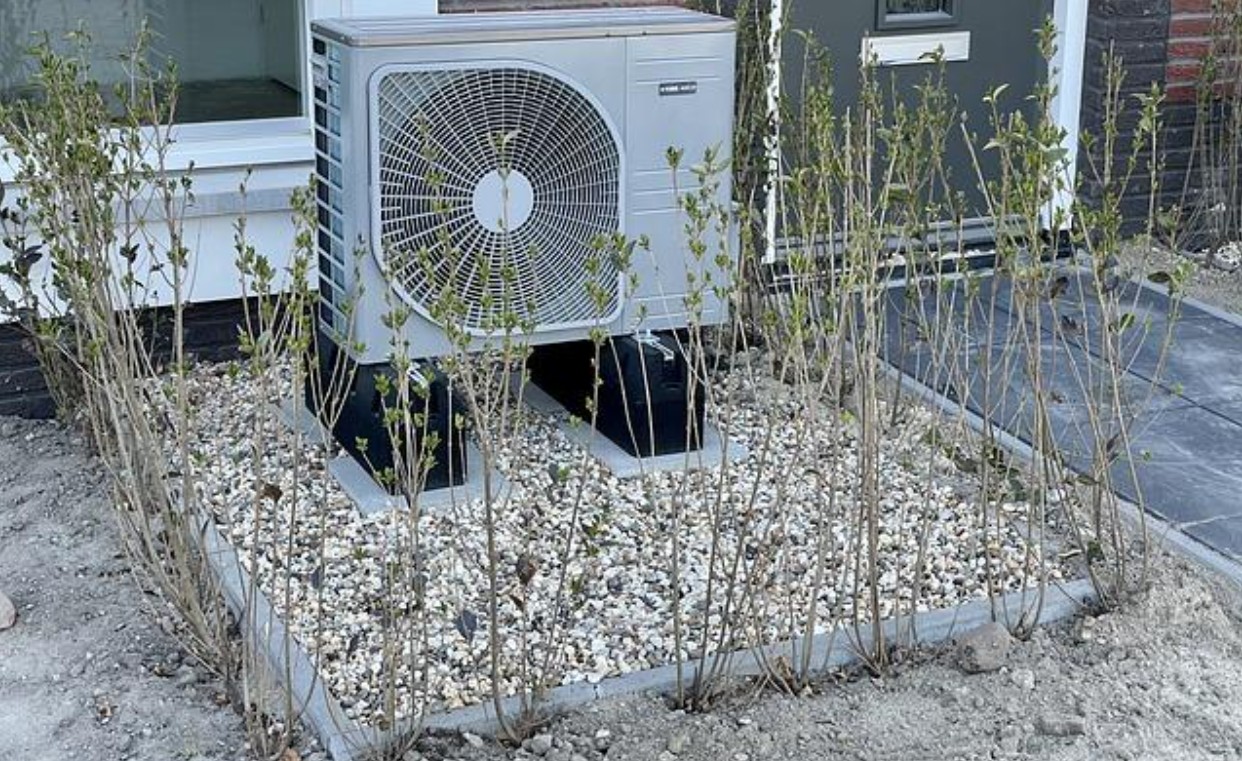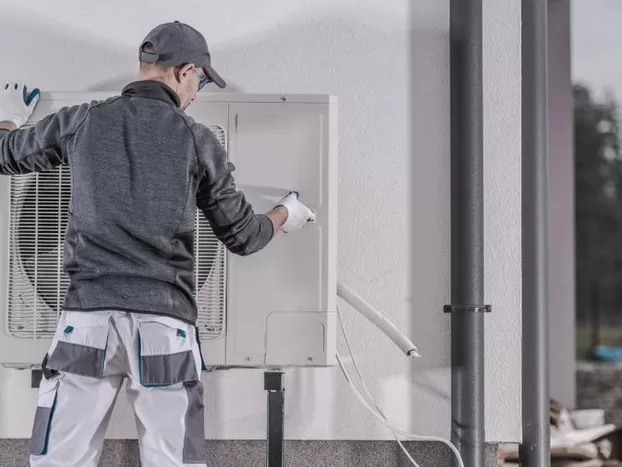When you consider creating a healthier home environment, the quality of your water might not be your first thought. Yet, having clean and filtered water plays an essential role in ensuring a healthy household. With different types of water pollution threatening your wellbeing, you need effective solutions.
Optimizing your domestic water filters is one notable step to combat health issues caused by contaminated water. Remember, these pollutants only enter your home if they aren’t stopped at the source.
Indeed, integrating state-of-the-art filtration systems such as available at: https://www.filtap.com.au/melbourne-water-filters/, into your daily life can drastically improve you and your family’s well-being. Hence, it’s important to understand how water filters help design healthier homes.
The Importance of Water Filtration
Your home’s tap water might seem clear and safe, but there are microscopic hazards. It can harbor damaging substances such as lead, arsenic, or nitrates.
Lead Contamination Risk
You might worry about lead contamination in your water. Even homes without explicit lead service lines could potentially have this harmful element in their water.
If a household has chrome-plated brass faucets or pipes soldered with lead, then the water may get infiltrated with this harmful compound.
Filtration for Weakened Immune Systems
Water filters are especially crucial for those with weakened immune systems, such as chemotherapy patients, HIV/AIDS sufferers, and organ transplant recipients. Not all filters are equal.
Specifically designed filters remove Cryptosporidium, reducing health risks. The CDC suggests labels mentioning ‘reverse osmosis’ or ‘absolute 1 micron’ pore size.
Outdoor Excursions
If you’re planning on camping or trekking near natural water sources, carry a portable water purifier to stay safe from potential bacteria or parasites.
What are Water Filters?
Water filters play a pivotal role in ensuring access to safe and clean water. Understanding their functionality can help you make informed choices.
A water filter protects against numerous contaminants using different methods. Carbon filters, for instance, effectively reduce common impurities such as lead.
- Carbon Filters: These can be pitcher filters, faucet-mounted, undersink, or even whole-house filters.
- Reverse Osmosis Systems: When combined with a carbon filter, it can excellently remove water contaminants.
- Water Softeners: Combined with an ion exchange filter, it not only softens your water but also reduces various contaminants.
- Picking a Water Filter: There are several factors to consider including the types of contaminants, cost and the location of installation.
Selecting a suitable filter requires assessing your specific needs and understanding the options available. Always prioritize quality for long-term benefits.
Incorporating a reliable water filter is essential for designing healthier homes. This tiny investment might significantly enhance the quality of your life.
How Do Water Filters Work?
Understanding how water filters work begins with acknowledging their core function. Essentially, they purify your tap water, making it safer for personal use.
These household staples use a multi-step filtration process. This goes beyond just eradicating impurities, also enhancing the taste and odor of your water.
Common contaminants targeted by water filters include chlorine, lead, and other harmful substances. Their elimination safeguards your health, providing you with access to clean, unadulterated water.
- Filtration: In this stage, physical and chemical processes are at work to remove impurities and particles from your water.
- Sediment Removal: It targets minute solid particles that could affect your water’s quality.
- Activated Carbon Filtering: During this phase, unwanted tastes and odors are reduced.
- Reverse Osmosis: It’s an advanced filtering technique that eradicates almost all remaining contaminants.
Filtration systems vary greatly in their level of sophistication. Installing higher-end models ensures the removal of more contaminant types.
A healthier home begins with quality water sources. Acknowledging the role of water filters is thus a significant step in the right direction.
The 5 Types of Filters
Domain filters play a crucial role in making sure no entity or individual listed in databases of banned or sanctioned names is dealt with.
Some examples of such databases include the UN sanctions list, OFAC list, and EU’s consolidated list.
Vendor filters, on the other hand, are used to assess vendors based on their location, industry and track record. These filters are a key tool in procurement processes.
Specifically, vendor evaluations may consider the vendor’s country of origin, adherence to industry-specific regulations, and previous performance on similar projects.
| Type | Role | Example |
| Domain Filters | To avoid dealing with banned or sanctioned entities | UN sanctions list |
| Vendor Filters | To assess vendor’s suitability for a task | Evaluation based on country of origin |
| Behavioral Filters | To detect suspicious behavior patterns | Rapid changes in contract award patterns |
| Financial Filters | To identify potential financial risks | Inconsistencies in financial reporting |
| Network Filters | To detect potential conflicts of interest or collusion | Shared ownership structures between vendors |
Moving to behavioral filters, these work by identifying and tracking any suspicious tendencies such as irregular contract award timing or peculiar bidding/payment processes.
Inappropriate or unauthorized interactions between vendors and procurement officers can also be flagged using these filters.
In a bid to secure financial processes, financial filters are designed to analyze financial data for any potential red flags like large or unusual transactions.
Discrepancies in financial accounts or inconsistencies in financial reporting can also be detected using these filters.
Last but not least, network filters are used to track relationships between vendors, procurement officers, etc., to detect potential conflicts of interest or collusion.
For instance, shared management structures between vendors or personal connections with procurement officers might be closely watched.
Types of Water Filter Systems
You want fresh-tasting tap water free of most contaminants. A reliable water filter system can ensure you stay hydrated and healthy.
Reverse Osmosis
Reverse osmosis filters are popular due to their ability to remove more than 99% of pollutants, delivering pure, clean water straight from your tap.
However, they do require consistent maintenance and may increase your water bill, as they purge a significant amount of water during filtering.
Activated Carbon
An excellent choice for removing chlorine, volatile organic compounds, and sediments, activated carbon filters improve taste while eliminating potential toxins.
Despite their effectiveness, these filters are relatively inexpensive and straightforward to install. Remarkable convenience paired with proficient purification.
Checklist for Buying a Water Filter
You may find myriad water filter types including under-sink, whole-house, faucet-mounted systems, pitcher-style filters, filtered water bottles, and showerhead filters.
Understanding Filter Technologies
Choose from various filter technologies. Activated Carbon filters improve taste and odor while eliminating chlorine.
Reverse Osmosis (RO) filters eradicate heavy metals, inorganic substances, and dissolved solids.
Evaluating Certifications & Ratings
Check that potential options carry certifications from organizations like NSF International, WQA, IAPMO or reputable testing entities like Consumer Reports.
These certifications indicate an independently confirmed level of contaminant removal.
Gauging Contaminant Removal Capabilities
Consider the contaminants you need to remove. For instance, Activated Carbon and some RO filters effectively remove chlorine.
For heavy metals like lead and mercury, look for RO filters with NSF 53 certification or similar.
Additional Factors to Consider
Weigh the initial cost and maintenance against the longevity of the filter; consider replacement costs as well.
Evaluate water pressure and flow rate. You wouldn’t want your filter to restrict flow or lower pressure.
What Do Water Filters Remove?
Water filters are indispensable for removing myriad contaminants. Faucet-mounted point-of-use filters are incredibly effective at eliminating high concentrations of lead from your drinking water.
Apart from lead, these filters efficiently diminish other metals such as copper, zinc, iron and manganese. This reduction in metallic content is mainly due to the physical removal of particles.
Water filters with carbon can greatly reduce the levels of common contaminants including lead and disinfection byproducts. However, the extent of their efficacy varies with the type of filter used.
Some advanced filtering systems combine reverse osmosis (RO) with carbon filters to create an extremely thin barrier that meticulously separates chemicals from your water, ensuring maximum purity.
- Countertop Pitcher Filters: These are portable and easy to use but require frequent refills and replacements.
- Faucet-Mounted Filters: These are installed directly onto your faucet for convenience but may not be compatible with all faucet models.
- Undersink Filters: Effective but require professional installation and take up storage space under your sink.
- Whole-House Filters: These treat all the water entering your home but can be costly to install and maintain.
Ion exchange filters use resin beads, acting as powerful magnets to attract and hold contaminants, effectively purifying your water from certain pollutants.
Certain water filters are certified to reduce PFAS levels. Their prices range vastly depending on the type and brand and may also come with additional maintenance and disposal costs.
Water Filtration Boosts Your Health
Different water filters employ various types of media, with many using activated carbon to reduce contaminants and enhance taste for a healthier you.
What Does a Brita Water Filter Use?
The Brita water filter achieves its impressive performance through a coconut-based activated carbon filter for optimal taste and cleanliness.
How Often Should Water Filters be Replaced?
Depending on the brand, replacement periods vary. For instance, the Brita Grand 10-cup pitcher requires changing every 2 months or after 40 gallons.
Can Old Filters Harm My Health?
Indeed, aged filters can cultivate bacteria in its moist environment, potentially leading to higher concentrations in your water.
What Contaminants are Found in Tap Water?
Among others, tap water can contain physical and biological contaminants such as E.coli and norovirus, chemical contaminants like lead, and even radiological contaminants.
What Are Some Health Risks Associated with Tap Water?
Potential risks include lead poisoning that can cause learning disabilities in children and kidney issues in adults. Ensure to periodically test your water.
Water Filters are Low Maintenance
The longevity of your water filter relies largely on routine upkeep. Their maintenance is simple but crucial for their consistent performance.
A primary aspect of water filter maintenance involves regularly replacing cartridges. Over time, these cartridges amass impurities and need replacement in order to sustain filter efficacy.
“Backwashing” is another prevalent method. This process automatically flushes water through the filters backwards to jettison accumulated impurities.
Some filters necessitate routine cleaning to maintain their efficiency; this usually involves running a cleaning solution through the system.
- Timely Replacement of Cartridges: Depending on usage and filter type, cartridge replacement may range between 3-6 months or 6-12 months duration.
- Periodic Backwashing: This method ensures the removal of trapped impurities thereby drastically enhancing the life and quality of your water filter.
- Regular Filter Cleaning: Regularly flush cleaning solutions through your filter to ensure it performs at optimal capacity.
Faithfully following these simple measures can ensure your water filter’s prolonged operation, guaranteeing you clean and wholesome drinking water for years.
Thus, caring for your water filter doesn’t have to be complicated or time-consuming, but it’s essential for the overall performance and lifespan of the unit.
Filtered Home, Healthier Life
Having clean and safe drinking water can profoundly increase your health. By exploring Filtap’s whole house filtration systems, you can choose the most effective water filters to protect you and your family. Remember, healthier homes start with superior water filtration.











